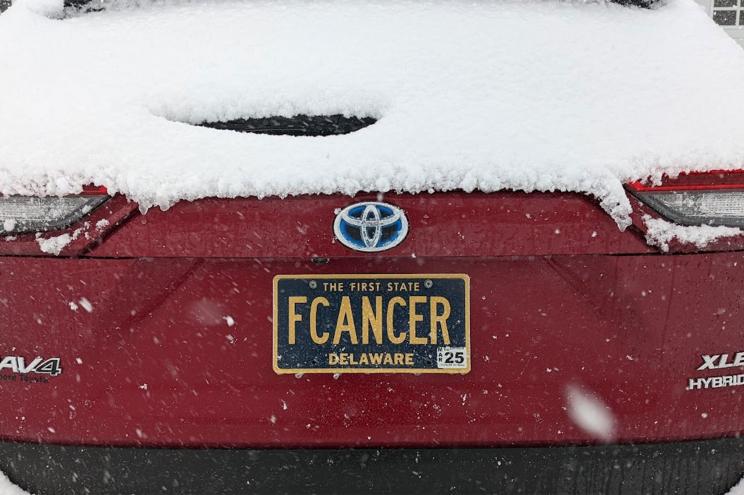A Delaware woman had her “FCANCER” vanity license plate revoked by the state but a federal judge ruled this week that the crude phrase could be protected free speech under the First Amendment.
The judge said in a ruling that the lawsuit by Kari Lynn Overington of Milton raises a “significant constitutional issue.”
Overington, 41, was granted the license by the Delaware Division of Motor Vehicles in 2020 before DMV manager Levi Fisher revoked it six months later, telling her it “does not represent the division and the state in a positive manner.”
Delaware Transportation Secretary Nicole Majeski backed up the backpedaling bureaucrat, stating that the “F” in the plate stood for a “perceived profanity.”
Overington noted that there were other “F” words that she could be referring to, and also argued that the DMV had used profane innuendos in state-sponsored slogans like “Get your head out of your Apps” and “Oh Cell No.”
“My vanity plate receives positive feedback everywhere I go, and I have had more than a few deep conversations with complete strangers about my cancer and how cancer has touched their lives because of it,” Overington wrote in an email to Majeski.
When her efforts to get the vanity plate back ended in vain, she filed a lawsuit against Majeski, Fisher and DMV Director Jana Simpler, alleging the officials had violated her right to freedom of speech.

The state argued that its employees had qualified immunity against personal claims made against them and tried to have the lawsuit tossed out, but United States District Court Judge Richard Andrews blocked the move for dismissal Monday.
Andrews said the suit raised a “significant constitutional issue,” citing a Supreme Court ruling that allows Americans to challenge free speech impingement by “unbridled discretion in the hands of a government official.”
The judge allowed Overington — who had been defending herself — to amend her suit to clarify that the defendants were being sued in their official, not individual, capacities, and said he would help her find a lawyer to argue the constitutional issue.
“I am ready for my day in court,” Overington told the Associated Press.
With AP wires








